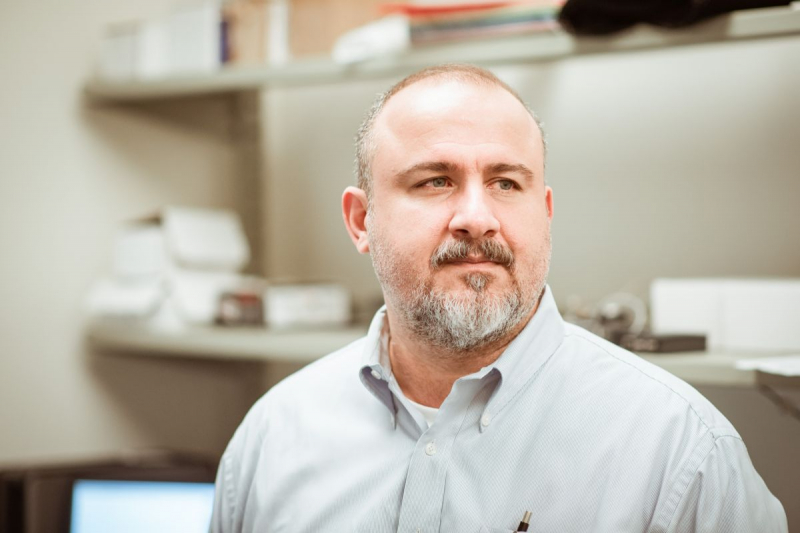Simple, everyday activities that people seldom put thought into – opening a door, cradling an egg, picking up a coffee cup – actually rely on complex interactions between your brain and the nerves of your hand and fingers, all of which are difficult to account for when it comes to creating prosthetic or programming AIs.
It's a challenge that Nuri Firat Ince, an Associate Professor in the Biomedical Engineering Department at the Cullen College of Engineering, is tackling in his research. One of his recent proposals, “Characterization and Decoding of Cortical Oscillatory Dynamics of Complex Hand Function,” has been approved for a National Science Foundation grant.
“In our daily life, grasping and holding an object, such as a hammer or an egg, with our hands is something that we do frequently and dexterously. These tasks require different levels of steady grasp force and exert different somatosensory sensations on our fingers and palm,” Ince said. “It is crucial to understand how brain controls sustained grasp and process sensory input in order to develop a closed-loop brain machine interface that can replicate natural hand function.”
He added, “In this proposal, we investigate brain oscillations recorded from motor and somatosensory cortex of human subjects. The outcome of this project will provide essential bases for advancing Neuroengineering and Brain-Inspired Concepts and Designs, and contributing to the development of next generation hand neuroprosthetics.”
Research on the $983,513 project started on Sept. 1, 2021, with an estimated end date of August 2025. The Cullen College of Engineering portion of the grant is about $709,000. Ince's co-PIs on the project are Dr. Sujit Prabhu, a Professor in the Department of Neurosurgery at the UT MD Anderson Cancer Center (MDACC), and Giuseppe Pellizzer, Ph.D., an Associate Professor in the Department of Neuroscience at the University of Minnesota.
Ince, Prabhu and Pellizzer have been collaborating together for the past six years and co-authored several peer reviewed articles on the functional use of high-density ECoG for brain machine interfaces and intraoperative brain mapping using machine learning. All three are authors on “Power Modulations of ECoG Alpha/Beta and Gamma Bands Correlate With Time-Derivative of Force During Hand Grasp,” a paper in Frontiers in Neuroscience that included the preliminary data for the NSF proposal.
Within the NSF, the project is funded by Integrative Strategies for Understanding Neural and Cognitive Systems (NCS), a multidisciplinary program jointly supported by the Directorates for Biology (BIO), Computer and Information Science and Engineering (CISE), Education and Human Resources (EHR), Engineering (ENG), and Social, Behavioral, and Economic Sciences (SBE).
Ince also highlighted the work done by Dr. Sudhakar Tummala, an electrophysiologist at MDACC. Ince and Tummala have frequently collaborated on research work together.
Ince's former doctoral student, Tianxiao Jiang, and current PhD student Priscella Asman served as the leading authors for the prior paper and contributed significantly to the success of the latest NSF grant as a result. Jiang graduated in 2017, and now works as a member of the technical staff for Cerebras Systems, a Silicon Valley company that builds computer systems for AI and deep learning programs.
